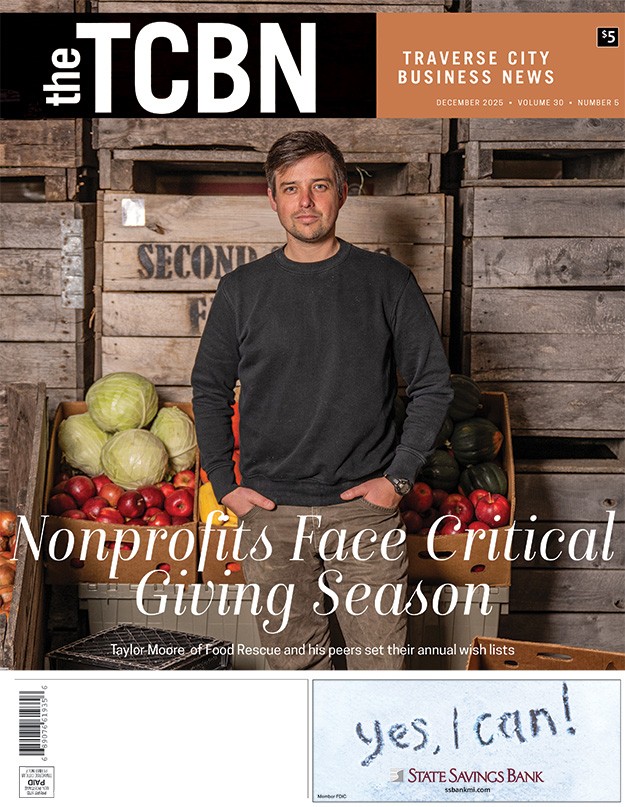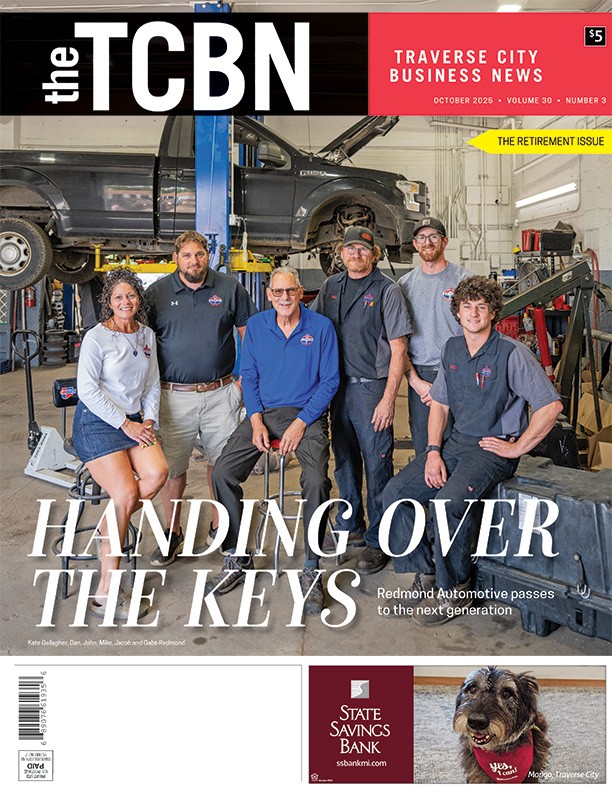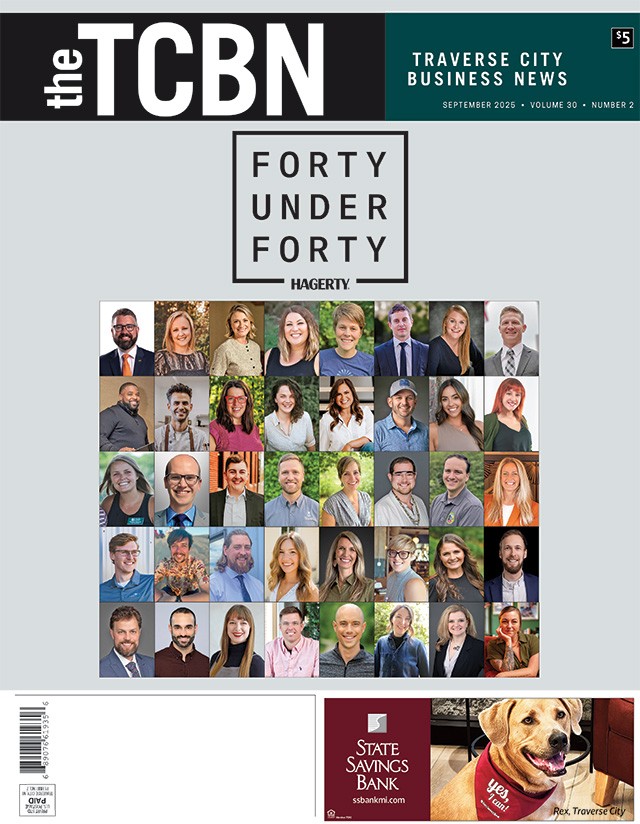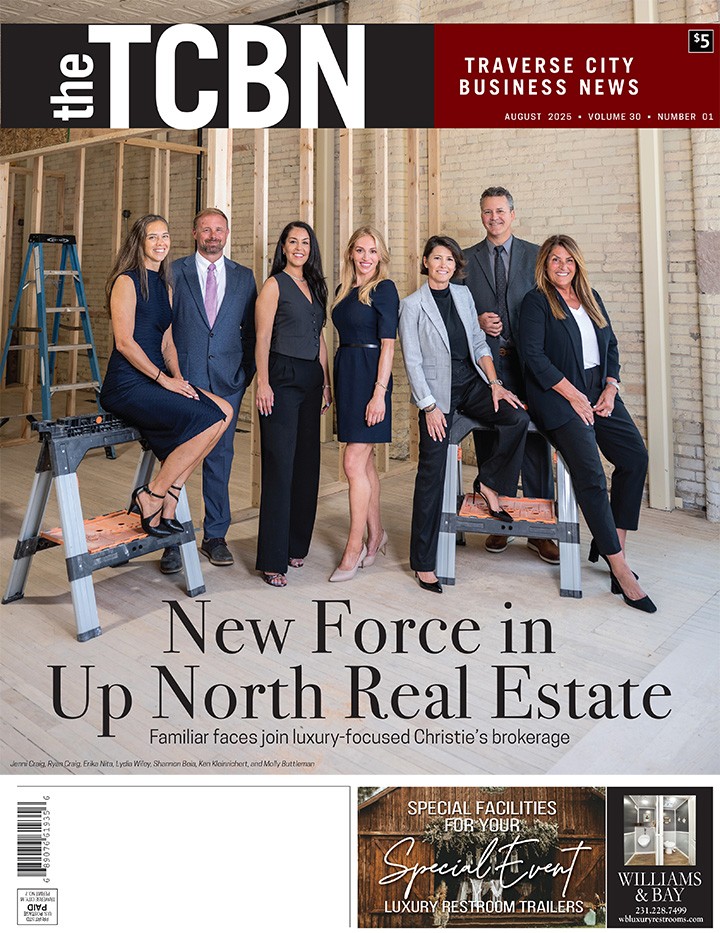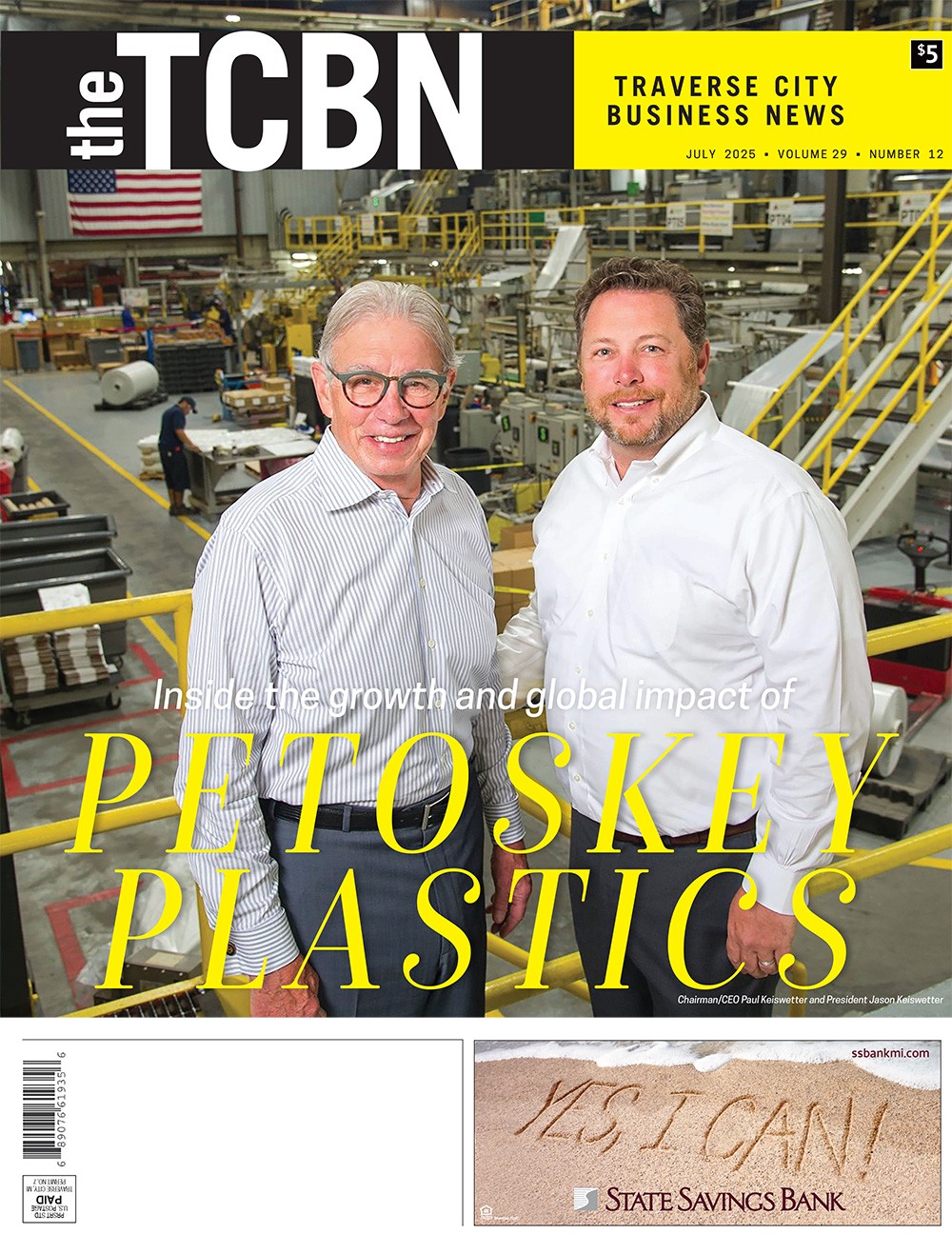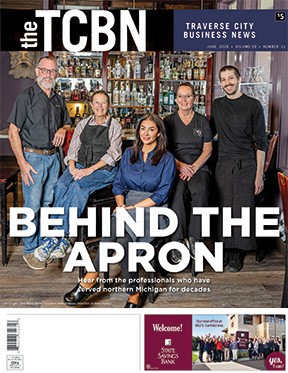Still in the Game: Four locals who can't quite retire
October 2025
Riding off into the sunset, so to speak, is what a lot of working folks dream of. Put in your time, hang up your hat and enjoy the fruits of retirement.
But for a variety of reasons, more retirement-aged folks than ever before are still working. A recent CNBC study found that the number of Americans aged 65 and older in the workforce surged by 33% from 2015 to 2024, one of several studies that show such increases.
Some of these people are doing it because they need the money. Others choose to stay working because it keeps them busy, sharp or involved. Plenty do it for a combination of these reasons.
The TCBN checked in with four locals who are still working in retirement age, albeit for far less time than they did during their careers.
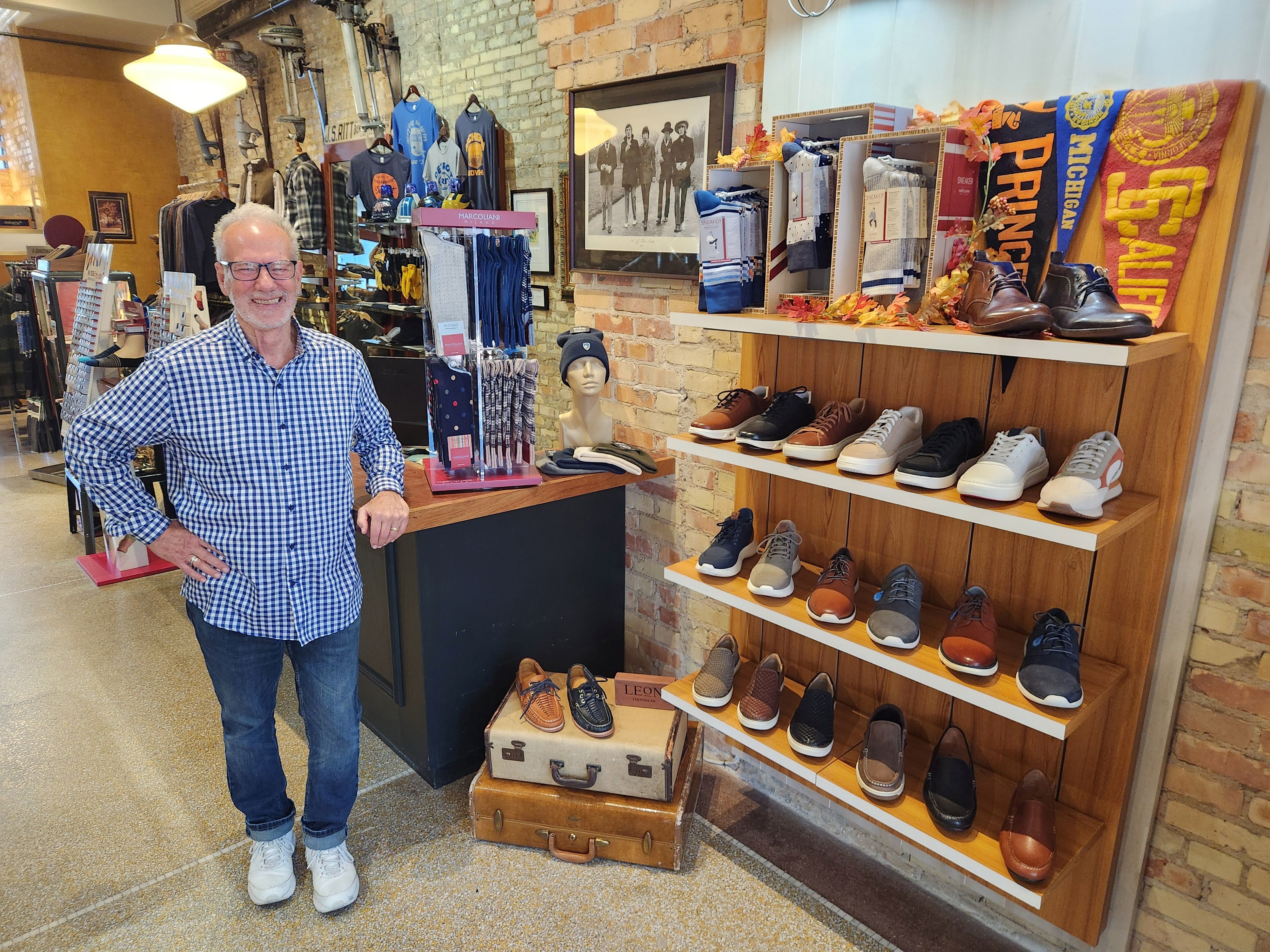 Matts
MattsDowntown’s friendly face
Michael Matts, 76, is often spotted at American Spoon or Robert Frost Quality, two downtown retailers that are beyond glad to have him in a time when dependable employees are very hard to come by.
Matts, an Army "brat” with Michigan roots, served in Vietnam before spending a nearly four-decade career in historic preservation. He played a role in helping save the historic Building 50 at the Grand Traverse Commons and for many years ran the Chicago office of the National Trust for Historic Preservation.
He largely retired from that work in 2022 and later moved to Traverse City, where it soon became apparent that he’d need to get at least a part-time job to make ends meet.
“After several months of looking at the finances, I said ‘Hold on here,’” he said. “I need to have extra income from somewhere.”
Matts lives and spends plenty of time walking around downtown, where he made friends with Joe and Bob Frost, the owner and founder, respectively, of apparel and footwear boutique Robert Frost Quality. They invited him to start grabbing a few shifts, and he obliged. Matts himself asked to work at American Spoon, where he had come to know the manager.
He now works up to 40 hours a week between the two locations in the busy season, though it’s often much less. He’s proud to do it and feels strongly that he and others like him are very important cogs in the downtown machine.
“I think that without people like myself doing this, the retail and probably restaurant industry would collapse,” he said. “We serve an important role.”
Retired folks are often more flexible and most don’t need health insurance, Matts says, two huge checks in the plus column from the employer’s perspective. Both American Spoon and Robert Frost have leaned into other retired workers to grab shifts as the many young people who work in retail head back to school, Matts says.
“You can really sense their need, and you’re aware that you’re helping make their lives better,” Matts said of his employers. “And I take pride that they have confidence in me. I have run both stores by myself, and there’s just great pride in knowing that you’re trusted.”
Ultimately, Matts’ work at this age and in this environment is a huge net-positive, he feels.
“It keeps you busy, it gets you out of the house and then it stops the bleeding [financially],” he said. “And it gives you a sense of community, both in terms of the associates you work with, but also with just interacting with people that come into the store.”
Matts finds great purpose in those interactions, which are just as helpful to people as his expertise in selecting great retail products.
"You're really an ambassador for all of Traverse City, too. People ask you about where to go get lunch, or where can I find this, where can I find that?” he said. “So we try to be aware of what’s going, what’s open, things like that.”
 Somers
SomersThe transporter
In a lot of ways, Steve Somers has got it made.
“I get paid to drive really nice cars that I like,” Somers, 70, said. “Volkswagens, Audis, Volvos and Cadillacs.”
Somers retired in 2017 after a long career in sales, much of it selling janitorial and packaging products. During this time, he was no stranger to travel.
“In my career I drove 40,000 miles a year. My territory was Traverse City to Sault. Ste Marie, and our corporate offices were in Muskegon and then Grand Rapids,” he said. “I was on the road a lot.”
He developed an affinity for Volkswagens during his working life, and took his vehicles to Serra in Traverse City for regular service. After he partially retired, the Serra folks suggested he drive cars for them. Not shuttling customers around in some dusty van, but instead delivering high-end cars to other dealers as part of dealer trades or delivering these cars (many of which are now bought through various online platforms) directly to customers themselves.
Somers is one of at least 20 such drivers for the Serra group alone, he says, and when the call comes, there’s rarely much notice.
“I'll get a phone call from one of three sales managers, and it's almost always last-minute,” he said. “A lot of times it’s two, three or four o’clock and it’s ‘Hey, can you drive to Dearborn tomorrow?’”
If he’s on the fence about taking the job, he has an easy way to decide.
“You can always say, ‘Well, what am I driving?’ And more importantly, if it’s a delivery, ‘What’s the trade-in?’” he said. “Because I have been caught in some real pieces of crap.”
Generally speaking, Somers is selective. He avoids driving more than three times a week and stays within Michigan, avoiding the long trips and overnights. He is, after all, retired.
“I’ve got other stuff I want to do, too,” he said.
But he enjoys his driving work and expects to do it for as long as he can and they’ll have him. He gets to meet new people all the time (one of this favorite parts) and there’s always the thrill of the open road and where it will lead him.
“You get to see a lot of sunrises. You get to see a lot of Michigan that you didn’t even know is there,” he said. “Where the heck is Ovid?”
He also finds it exciting to experience the newest and best luxury cars on the market, even if they all are a little different.
“One of the first times that I drove a Volvo, all I wanted to do was turn off the heated seat, but here I was in Kingsley burning my buns off,” he said. "Where the heck is (the switch)? I know where it should be. I know where it is on a Volkswagen. I know where it is on an Audi.”
Finally, his past career makes him the perfect person to be driving expensive cars around, he says.
“When you drive as much as I did, if you're not already, you become a very defensive driver,” he said. “Your head is on a swivel, pretty much all the time. You’re always looking ahead.”
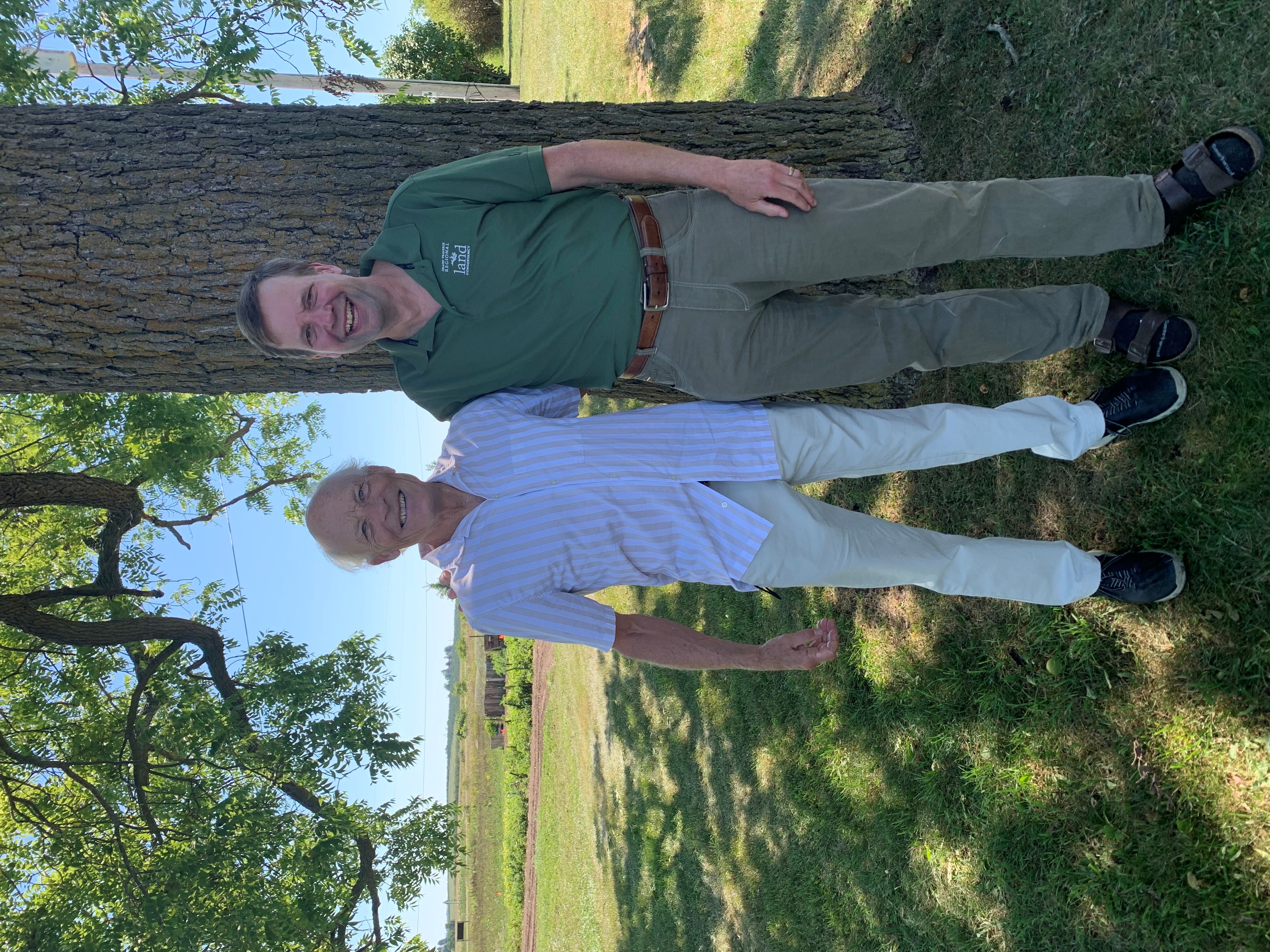 Bellingham and GTRLC Executive Director Glen Chown
Bellingham and GTRLC Executive Director Glen ChownThe workplace wizard
Rick Bellingham, 80, is an established author and trusted leader when it comes to the healthy function of workplaces. As an organizational psychologist, he’s used scientific methods to understand and improve human behavior and interactions within organizations.
In this role he’s worked with hundreds of organizations and companies to create healthy, innovative and productive work environments. This often involves a transformation of some sort, he says, and he’s found deep fulfillment in shepherding these transformations over the years.
“It’s very satisfying when it happens, and it’s fun to watch,” he said. “There’s nothing better than seeing people achieve their goals.”
He began scaling back his work years ago as he got older. He still collected fees for his work through 2024, but now offers his services pro bono to nonprofit organizations and on a word-of-mouth basis.
On a local level, these organizations include the Grand Traverse Regional Land Conservancy, TART Trails, Norte Youth Cycling, Interlochen Public Radio, Rotary Charities and several more. Bellingham is selective about the work he takes on these days.
“At this point in my life, I’m really interested in nonprofits and great people who are doing great work in our area,” he said. “Traverse City has so many incredible organizations.”
That these organizations are close to home is another big bonus for a guy who’s logged a lot of miles over the years.
“I’m not hopping on a plane every Monday morning and coming back Thursday night; I’m not traveling all over the world,” he said. “I really love being able to focus locally.”
For Bellingham, a full retirement will never be on the table. He finds too much joy and purpose in his work. Plus, the 20 or so hours a week he puts in now is exponentially more manageable than what he took on in the old days.
“I just feel very lucky because I’ve always been able to work doing things I love doing, and now, I can still [offer my services] without working those 80-hour weeks,” he said. “It’s not something I ever want to stop – as long as I can keep doing it, there will be nothing I like doing more.”
That said, he still enjoys plenty of time with family, and considers himself very fortunate that he’s chosen to continue work instead of being compelled by some other force to do so.
“I'm really lucky to have the choice of having balance,” he said. “A lot of people don't have that choice, so I totally acknowledge my privilege in having a little balance in my life and having control of it.”
 Rosenberg (far right) with family
Rosenberg (far right) with familyThe money man
Craig Rosenberg is a financial planner who logged about 30 years in the industry, mostly at large firms, before breaking off on his own nearly 10 years ago.
He maintained an office for a while, but now mostly works from home with a small portfolio of clients who trust him to get the most out of their money. He is very hands-on in doing so, boasting that his clients are outpacing major stock market indexes by a considerable margin.
“Now, I’m focused on primarily managing clients’ money. I enjoy it immensely, and quite frankly, I’m good at it,” he said. “When you work for a big firm … you want to get the assets in and turn them over to managers. I’ve done that for decades, and I’m at the point in my career where I really didn’t want to do that anymore.”
He also didn’t want to work full-time anymore, so he’s down to around 25 hours a week, not including reading and research. At 65, slowing down – but not quitting entirely – was very appealing. There are still very busy days, but the overall load is lighter.
“As I like to say, I'm kind of retired. Some days, especially if I've got an active trade on, or if there's markets moving, I might be working eight or 10 hours a day,” he said. “But other days, I’ll only work a couple of hours a day.”
He doesn’t promote or market himself, only taking on new clients by word of mouth. This allows him to keep his workload where he wants it to be. But like others in his situation, it’s just not in his blood to retire full-time – at least for now.
“I’m a type A personality, and I'm not the one to retire and play golf five times a week,” he said. “It’s just not me.”
Rosenberg enjoys that he can do his work from anywhere (provided he has his laptop) and that his work keeps him plugged into world affairs.
“It keeps me dialed in and focused in terms of not only what's going on in the market, but within the world, because when you're managing money, you’ve also got to know what's going on in the world,” he said. “So I'm dialed in on the political end and the economic end as well.”





